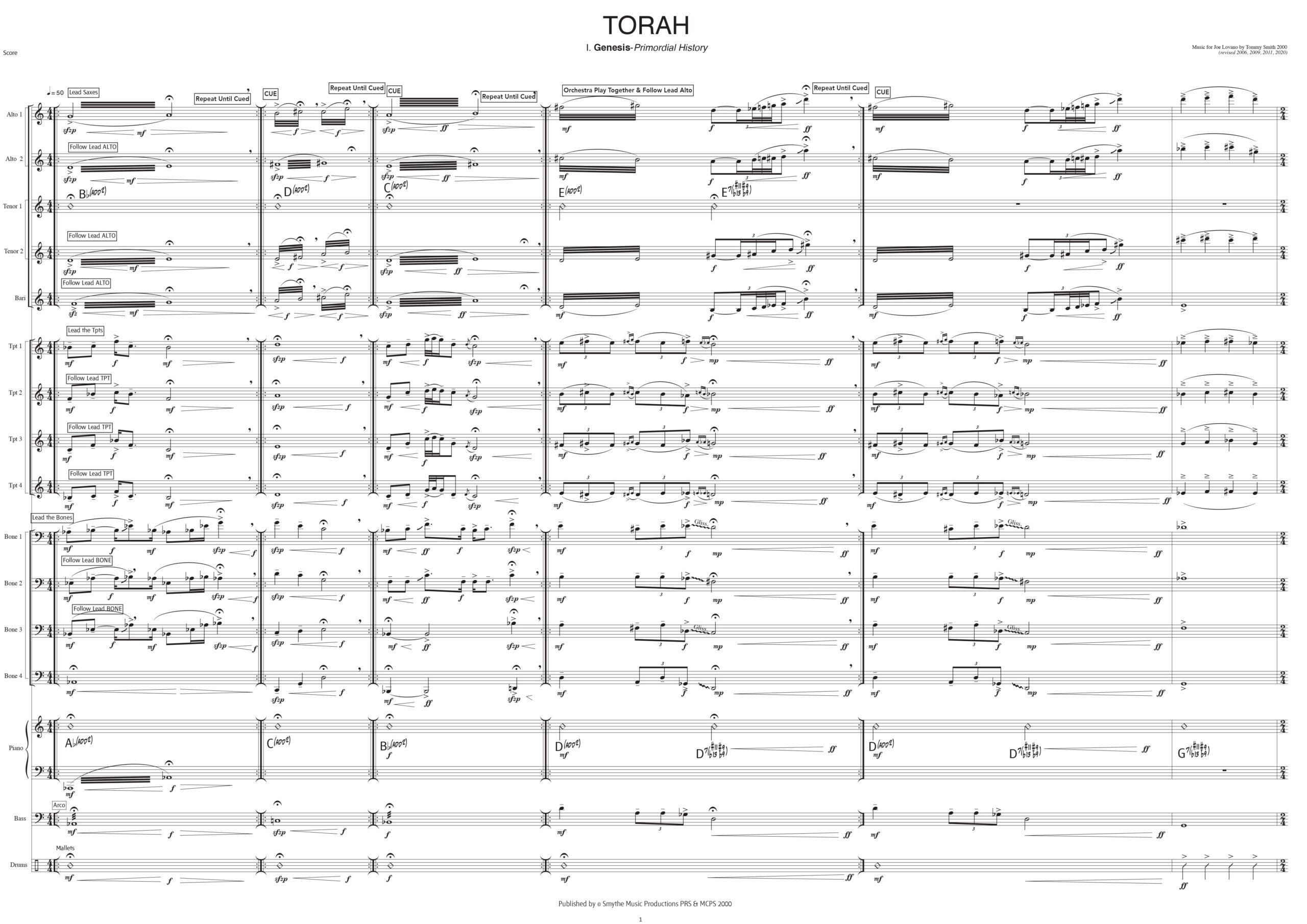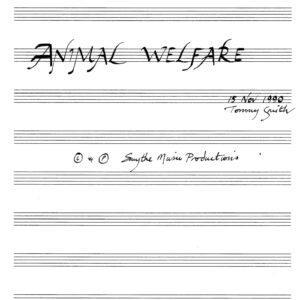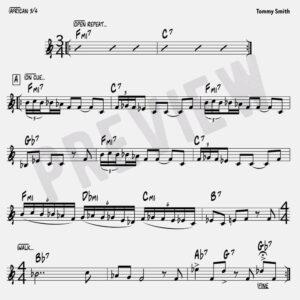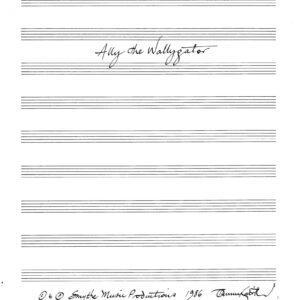More Information
Torah
- Genesis – Primordial History
- Exodus – Journey Through The Wilderness
- Leviticus – Ritual
- Numbers – Settlement
- Deuteronomy – The Three Discourses of Moses
Reviews
“Fashioning tenor sax lines of power and finesse, varying the approach and levels of lyricism according to the requirements of his own five movements, he emerges as a complete, major soloist.” JAZZ JOURNAL
“Smith unleashed an exhaustive range of improvised ideas and covered the tenor’s every mood of expression.” ★★★★ THE HERALD
“An awesome display of unflagging invention, endurance and virtuosity.” The writing, with the SNJO handling its multiple demands with assured elan, is remarkable for its focused clarity and imaginative detail.” ★★★★ THE IRISH TIMES
“The orchestra deftly executes the flutter, riffs and stabs of big band tradition” ★★★★ THE FINANCIAL TIMES
“Another glowing testimony to the band and its Director Tommy Smith” ★★★★ THE SCOTSMAN
“a tremendous showcase for Smith and this wonderfully vital orchestra” DARLINGTON & STOCKTON TIMES
ALLABOUTJAZZ ★★★★ 1/2
19th Oct 2010
Since returning home after schooling at Berklee College of Music, vibraphonist Gary Burton’s final ECM quintet and Whiz Kids (1987), and four Blue Note discs as a leader, Tommy Smith has virtually single-handedly placed his native country on the jazz map with his Scottish National Jazz Orchestra (SNJO). He’s also become a powerful advocate on the educational/mentoring front, leading the Tommy Smith Youth Jazz Orchestra and, with Exploration (Spartacus, 2007), demonstrating that it’s possible to encourage mature performances from a group of up-and-comers. Two Youth Orchestra members are now, in fact, part of the SNJO (saxophonist Bill Fleming and trombonist Michael Owers), and withTorah, Smith has delivered a career high point deserving of as much attention as the sudden proliferation of large ensembles in North America over the past couple years.
Torah isn’t a new piece Smith wrote it in 1999 for American saxophone great Joe Lovano. There’s little doubt that Lovano turned in a stellar performance, when the five-part, 63-minute suite debuted in Edinburgh and Glasgow at the turn of the century, but it’s perhaps even more appropriate that the composer who has the most intimate understanding of its nooks and crannies has now become the featured soloist. As a player, Smith has been delivering consistently over the past decade, on his own albums including the all-star-driven (Spartacus, 2003) and cohesive quartet date Forbidden Fruit (Spartacus, 2005), as well with Norwegian bassist Arild Andersen’s three year-old working trio, responsible for the powerful 2008 ECM debut, Live at Belleville. But Torah represents Smith’s most exhilarating and relentlessly creative playing to date, couched in a sweeping series of compositions that position him as one of modern jazz’s most intriguing and compelling large ensemble composers.
Pianist Steve Hamilton a member of Smith’s Forbidden Fruit quartet and an ex-member of drummer Bill Briford’s Earthworks is the saxophonist’s foil on Torah with less solo space, to be sure, but, along with bassist Calum Gourley and fellow quartet-mate/drummer Alyn Cosker, providing the fire in the engine room that makes Torah such a thrilling listen from start to finish. Smith’s acute ear for arrangement means that, while he takes plenty of extended solos, contexts galore are taking place beneath, above and around him, making even the 20-minute “Exodus” seem to pass by in a nanosecond. Smith’s breathtaking duet with Cosker, on the closing “Deuteronomy,” combines dexterity, visceral power and a deep wellspring of ideas, while his opening three-and-a-half-minutea capellasolo on “Numbers” demonstrates a breadth of extended techniques, before leading into a quirky blues, his continuing solo punctuated with swelling horn voicings and sharp punctuations.
This may clearly be Smith’s show, but it wouldn’t succeed as it does without an orchestra of massive talent not just reading the notes off the charts, but bringing them to vibrant life.Torahis an important record, not just for the limitless Smith, but as unshakable proof that jazz is alive and thriving in the land of celtic music, kilts and tartan.
“Torah represents Smith’s most exhilarating and relentlessly creative playing to date, couched in a sweeping series of compositions that position him as one of modern jazz’s most intriguing and compelling large ensemble composers.” ALLABOUTJAZZ




